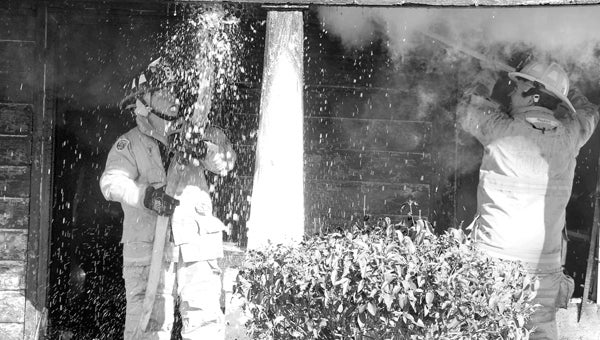Cold weather safety
Published 7:23 pm Wednesday, November 19, 2014

FILE PHOTO | DAILY NEWS
EXERCISE CAUTION: Cold weather often brings about an increase in fires caused by faulty heaters or unsafe chimneys. There are ways to make winter safer.
Although the official start of winter is a month away, record-low temperatures this week should have served as a reminder that winter is a time for safety precautions, inside and outside the home.
Staying in one’s home during winter does not guarantee one’s safety. The Centers for Disease Control and Prevention notes that many people, especially the elderly, face health problems — even death — in cold weather. If your heating source is powered by electricity, the loss of power can place you and your family in danger. Improper use of heating devices such as portable kerosene or electric heaters also pose dangers.
The Centers for Disease Control and Prevention suggest taking severak measures to help ensure safe and warm home during winter.
Winterize your home by doing the following:
- · Install weather stripping, insulation, and storm windows.
• Insulate water lines that run along exterior walls.
• Clean out gutters and repair roof leaks.
Check your heating systems by doing the following:
• Have your heating system serviced professionally to make sure that it is clean, working properly and ventilated to the outside;
• Inspect and clean fireplaces and chimneys;
• Install a smoke detector. Test batteries monthly;
• Have a safe alternate heating source and alternate fuels available;
• Prevent carbon monoxide (CO) emergencies by installing a CO detector to alert you of the presence of the deadly, odorless, colorless gas. Check batteries regularly. Learn symptoms of CO poisoning: headaches, nausea, and disorientation.
The National Safety Council reminds folks that fatal fires in the home, most often, are the result of not having a working smoke alarm or carbon monoxide detector. The NSC also suggest families develop an exit strategy in the event of a fire at home.
To help prevent residential fires, the NSC recommends having fireplaces cleaned regularly, not using candles as heat sources and properly using space heaters.




